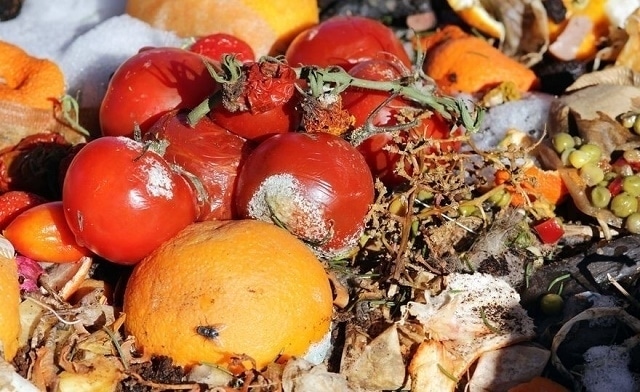Apr 11 2016
A recent study has highlighted that by mid-century it would be possible to trace nearly a tenth of the total global greenhouse-gas emissions obtained from agriculture. For the very first time, a research team from the Potsdam Institute for Climate Impact Research have provided a global report on the overall food loss rate, and they have also calculated the associated emissions. Based on current analysis, if countries like China and India adopt a Western nutrition lifestyle, there would be a dramatic increase in the share of one-third of the global food production that never reaches plates. Food security is guaranteed when there is a reduction in food waste. At the same time, it could also help reduce dangerous climate change.
 Reducing food waste can contribute to fighting hunger, but to some extent also prevent climate impacts. (Photo: Thinkstock)
Reducing food waste can contribute to fighting hunger, but to some extent also prevent climate impacts. (Photo: Thinkstock)
“Reducing food waste can contribute to fighting hunger, but to some extent also prevent climate impacts like more intense weather extremes and sea-level rise,” lead author Ceren Hic says. Despite the fact that the availability of food on a global average has seen a growth in theory, a few countries still fight for hunger or undernourishment.
At the same time, agriculture is a major driver of climate change, accounting for more than 20 Percent of overall global greenhouse-gas emissions in 2010. Avoiding food loss and waste would therefore avoid unnecessary greenhouse-gas emissions and help mitigate climate change.
Prajal Pradhan, Potsdam Institute for Climate Impact Research
The researchers examined food requirements and body types for varied past and future scenarios, based on demographic changes including food demand, availability and other corresponding emissions. They also discovered that the availability of food has increased even though the global average food demand for each person continues to be constant.
More importantly, food availability and requirement ratio show a linear relationship with human development, indicating that richer countries consume more food than is healthy or simply waste it.
Prajal Pradhan, Potsdam Institute for Climate Impact Research
The study highlights that by 2050, the greenhouse-gas emissions associated with food waste will increase from 0.5 to 1.9-2.5 Gigatons of CO2 equivalents every year.
Emissions from agriculture will become more and more important
Earlier research highlighted that by 2050 emissions from agriculture are estimated to rise by up to 18 Gigatons of CO2 equivalents due to an unrestricted demographic growth and changes in lifestyle.
Thus, emissions related to discarded food are just the tip of the iceberg. However, it is quite astounding that up to 14 percent of overall agricultural emissions in 2050 could easily be avoided by a better management of food utilization and distribution. Changing individual behavior could be one key towards mitigating the climate crisis.
Prajal Pradhan, Potsdam Institute for Climate Impact Research
“Currently, 1.3 billion tons of food per year are discarded,” explains Jürgen Kropp, co-author and deputy chair of PIK research domain Climate Impacts and Vulnerabilities. The most food loss takes place in developing countries due to the lack of efficient agricultural infrastructures, whereas food waste commonly occurs in rich countries.
As many emerging economies like China or India are projected to rapidly increase their food waste as a consequence of changing lifestyle, increasing welfare and dietary habits towards a larger share of animal-based products, this could over proportionally increase greenhouse-gas emissions associated with food waste – at the same time undermining efforts for an ambitious climate protection.
Jürgen Kropp, Deputy Chair, PIK research domain Climate Impacts and Vulnerabilities
In-depth research is needed for issues dealing with how the food supply chain can be made more efficient and smarter, and how to convince consumers to reduce food waste. The study conducted by the researchers highlights the complex interaction of food security and climate change that will be of immense importance in the future, which will be responsible for feeding about 10 billion people.
Avoiding food loss could pose a leverage to various challenges at once, reducing environmental impacts of agriculture, saving resources used in food production, and enhance local, regional, and global food security.
Jürgen Kropp, Deputy Chair, PIK research domain Climate Impacts and Vulnerabilities